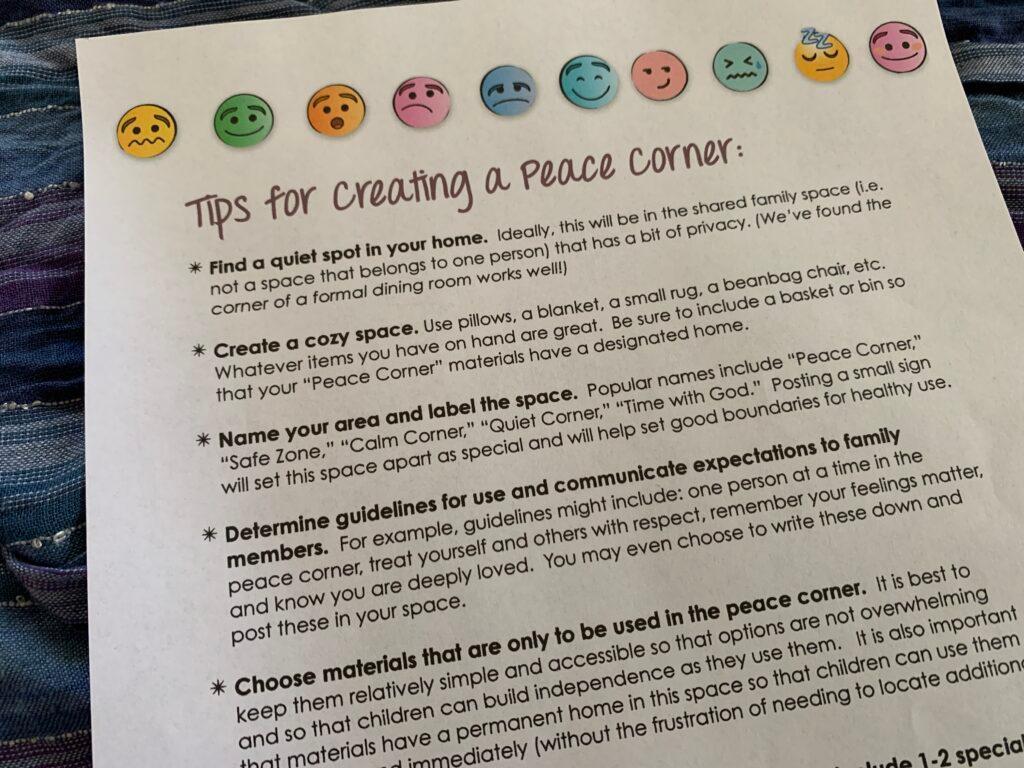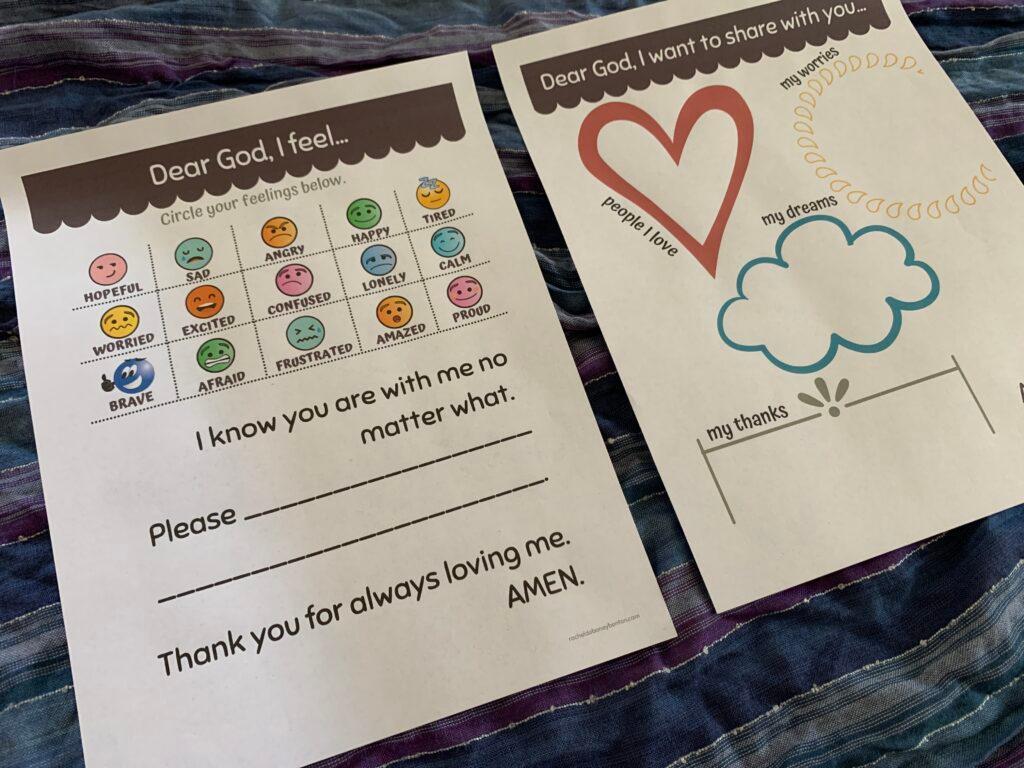These days when I talk to fellow families, I hear the same echoes in our voices. We’re weary. We need encouragement. The world around us brings emotions that are hard and complex, and navigating those emotions with children is increasingly difficult.
Bridging the Gap
One simple way we can respond is by helping families with children connect their feelings and their faith. Thankfully, schools, workplaces, and medical providers are increasingly speaking up about the importance of mental health, and we need to help families hear this message in our churches, too.
Creating safe space for children and families to express their feelings isn’t just a good mental health practice, it is a faithful Christian practice.
Caring for emotions allows families to live an embodied, authentic, holistic faith that allows God to be intimately connected to every part of their being. It gives them the opportunity to live the Shema – to fully love God with their hearts, souls, and strength (Deuteronomy 6:4-9). It helps them be incarnational people who seek to build connections between their relationship with God and what is happening in the world around them. And for many families, this is deeply good news.
Faith & Feelings – the Role of the Church
Feelings and faith can be a bit of a slippery slope in the life of the church. We can tend to be hesitant (“I’m not qualified! Best to leave those topics to the professionals!”), or overly willing (“These people need help! Let me do all that I can!”).
For those serving in the church, it is important to recognize our limitations, as most of us are not mental health professionals. And yet, it is also important to recognize our gifts, as there are many things we CAN do!
- We can frame the importance of mental health in a theological context.
- We can create meaningful connections between our feelings and our faith practices.
- We can be a curator and amplifier of mental health resources from reputable sources.
- We can be a voice of support and encouragement.
- We can specifically pray for the emotional health of families in our congregations and communities.
- We can work for justice and equal access to mental health resources in underserved populations.
Framing Feelings Theologically
While many families are familiar with the benefits of good mental health – positive emotions, improved functionality in day-to-day life, better physical health, etc. – they may not be as well-versed in the theological support for it.
So, from a faith perspective, why does mental health matter? It matters because…
- God is with us. God is with us in the highs and lows, the joys and heartache, and everything in between.
- We are loved. No matter what emotion we are feeling, nothing can separate us from God’s love.
- We matter. We are God’s beloved people who have gifts to share with others.
- We are incarnational people. Our faith is embodied and is connected to the world around us.
- Grace is core to who we are. Nothing and no one is beyond God’s reach or care.
Connecting Feelings to Faith Practices
In some ways, children naturally do the work of connecting feelings to faith. Their brains are constantly making connections and are full of possibility! And in many ways, parents also have a natural proclivity toward building these connections, as the emotional well-being and faith of their children are often high priorities.
Our role as church leaders is to support, encourage, and resource families so that these natural inclinations can grow into intentional discipleship that draws them toward abundant life.
Practical Resources for Building Connections
When we consider ways to do this work, whenever possible, seek to provide faith connections that can be incorporated into a family’s existing approaches to emotional well-being. As we well know, families do not need extra things to add to their to-do lists!
Not sure where to begin? Here are a few core objectives and corresponding downloadable resources to share with families or in classrooms. They could be used individually or grouped together as a packet of materials.
Objective One: Incorporate Sabbath practices into daily life.
Rest is key to our emotional well-being. Explore this handout with helpful tips and concrete ideas for creating a Peace Corner. Click here to download Tips for Creating a Peace Corner.
Objective Two: Connect God’s story to our stories.
Scripture is filled with emotion. These “God, when I’m feeling” Cards link 15 feelings with 15 corresponding scripture verses. Click here to download Scripture Cards.
Objective Three: Remember we are beloved.
Grounding our identity in God nurtures our well-being. These 10 cards affirm who God is and who we are. Click here to download Affirmation Cards.
Objective Four: Share our lives with God.
Tactile, quiet activities that foster reflection and encourage time with God.
Click here to download a packet of 6 Coloring Pages & Activity Sheets that include feeling exercises, prayer prompts, and words of faith.
Click here to download printable instruction sheets for a Tracing Prayer and a Light a Candle Prayer.
Photos provided by Rachel Doboney Benton.






Thank you for sharing these fabulous resources.
I was only able to print the first 5 affirmation cards. Advice for getting the last 5?
Hello! Not sure why that happened. I’m happy to email you the PDF in case that works better.
Brenda, the email bounced. You can contact me at [email protected].